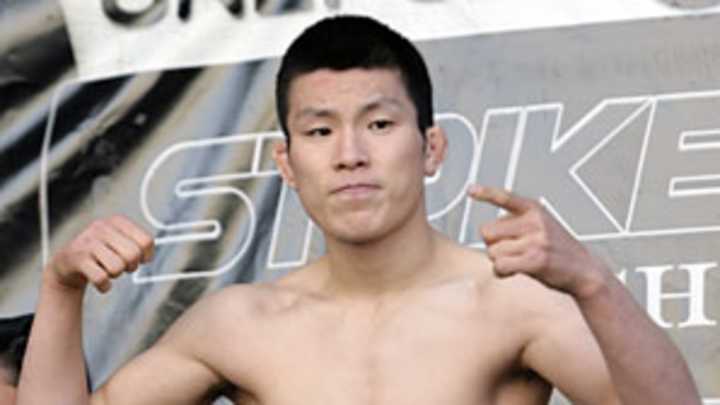Aoki, Kawajiri look to make cases for UFC contracts at Strikeforce

SAN DIEGO -- If we are to believe Shinya Aoki and his translator, as of Thursday afternoon Aoki had no idea whether his friends and family back home in Japan were safe after the latest earthquake, nor did he particularly care.
"I haven't heard from them yet, but it doesn't matter at this moment if they are safe or not," Aoki said via his translator. When asked why he appeared so unconcerned with the welfare of others, he replied, "Because I am a fighter."
Sometimes the nuances get lost in translation, but this time the message seemed crystal clear: enough with the Japan stuff.
When you think about it, it's hard to blame him. Well, maybe not exactly hard. Tatsuya Kawajiri, who has a lightweight title fight against champion Gilbert Melendez to worry about on Saturday night, managed to be gracious when asked the same exact questions about the goings-on back home. Still, even Kawajiri has balked at the idea of taking up the mantle for all of his countrymen as he heads into one of the most gruelingly individual pursuits in pro sports, and that's understandable.
For the three Japanese fighters on the card (Hiroyuki Takaya is relegated to the undercard), home is a place of tremendous uncertainty right now, and not just because of natural disasters.
The well of Japanese MMA seems to be gradually drying up, and soon there may be no major promotion capable of sustaining fighters like Aoki and Kawajiri, who built their careers there and stayed loyal to the local promotions even when those promoters didn't show them the same appreciation.
Four years ago, back when Kawajiri faced Melendez for the first time, the scene in Japan had declined, but compared to the present day it was a thriving land of opportunity. Now? The big paydays have disappeared, and even the meager paydays show up months after they were agreed to and fought for.
It's enough to make you wonder, what's going to become of guys like Aoki and Kawajiri if they can't catch the UFC's eye in this critical time?
Recently, Strikeforce's open relationship with overseas promoters has offered a less frightening alternative for Japanese fighters who wanted to test the waters in the U.S. Guys like Aoki could have their day in the cage without locking themselves into an exclusive contract like the one the UFC insists upon.
But now that the UFC owns Strikeforce, those days seem numbered. If Aoki and Kawajiri can't make their case during this awkward transition phase, they could end up mired in an anemic Japanese fight scene that neither makes full use of their talents or pays them in proportion to them. That's bad news for everyone who appreciates quality fights, but it's especially bad news for the athletes who have only a limited window to make the most of their abilities.
The first time Aoki fought in Strikeforce, he went out of his way to portray himself as a representative of Japanese MMA. If he couldn't beat Melendez, he said, Japanese MMA would become a "colony" of the American fight scene.
After taking a beating in that first effort, however, he's made it clear that this time he's doing it only for himself -- a sentiment echoed by Kawajiri, who is more polite but clearly just as annoyed by all the reporters asking him if he's ready to put the whole of Japanese MMA on his back and carry the load to the promised land.
It's true that whether Aoki and Kawajiri win or lose on Saturday night, it probably won't affect Japanese MMA either way. But if it really is their own careers that they're concerned with above all else, they have to recognize the severity of the situation. As the power of the MMA world consolidates in Las Vegas, there are fewer and fewer opportunities back in Tokyo.
Kawajiri and Aoki don't need to win to lift the spirits of their countrymen, who probably aren't terribly interested in pro sports just now. They also don't need to prove anything about Japanese fighters in general. This time, they need to win -- or at least lose impressively -- for the sake of their own careers.
As much as they might love the fight scene back home, it hasn't loved them back lately. The money and the opportunities have shrunk before their eyes, and that trend shows no sign of stopping. U.S. promoters might be cutthroat and lacking the same sense of loyalty, but at least they pay on time. That is, if you can prove to them that you're worth it.
